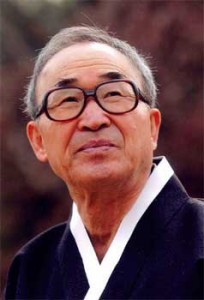The childhood, youth and adulthood are marked by rituals and sharing with their peers that permeate and strengthen ourselves and the past that lives with us. We are confident that occur in a similar manner to those of a little more ahead of us, accompanying safety and certain promises for the future.
It is not always so for the peoples of the Earth, and for individuals.
Those that promise, they can lie about moments of our lives and lead us in ways scornful and cruel sac, as if they were appointments stolen. Compared to the aspirations of every day, the dissatisfaction is winning. If we base the future and the image of our lives by virtue of what you promised yourself, the result will always be limited. Despite all this we can not say incontrovertibly to passively accept everything, because the environment and the men, however, can cause damage.
We succumb, despite the fact that the self-respect to stand circles with your fingers downward on the cliff into the abyss of the soul without hope. Aid to continue to imagine new lives, can be supplied by the example of those who, while living at the antipodes, through the weaknesses and failures, have managed to survive and ultimately to live.
Ko Un, Kunsan, August 1, 1933, is a poet, writer, essayist, playwright and painter South Korea, one of the most representative figures in contemporary South Korea.
KO UN– Picture taken HERE
A KO was forced to learn the Japanese Empire during the Japanese rule, and then the Chinese language. He cultivates learning Korean anyway. When war broke out in 1950, he was shocked by the horror and attempts suicide. He saves and takes refuge in Buddhism. He begs and teaches free Korean language and art, and in addition he writes essays and poems. In 1962 he abandoned Buddhism, disillusioned by the corruption of the clergy. He reads foreign authors, and continues to write, alternating periods of prostration. Twice he attempts suicide.
But at the beginning of the 70s he continued confidence. He is responsible for human rights and became an activist against the Korean dictatorship and for this he was imprisoned several times and he was sentenced to life imprisonment in 1979, and also primarily for his literary and political.
In 1982 he gets amnesty. He falls in love and marries and starts a new phase of artistic production, publishing numerous works, ranging in different styles, receiving awards of any kind and repeated nominations for the Nobel Prize. The poetry, essays, plays, translations, has characterized his underground path of fall and rebirth.
From “Flowers of a moment” KO ONE
The soul of a poet
A poet is born in the spaces between the crimes,
theft, murder, fraud, violence,
the darkest part of this world.
The words of a poet insinuate themselves between the
expressions most vulgar and low,
in the poorest neighborhoods of the city,
and dominate for some time now.
The soul of a poet reveals the lonely cry of truth
emanating from the spaces between lies and evils of his time.
It is a mood beaten to death by everyone else.
The soul of a poet is doomed, there is no doubt.
–
And I listen to you and answer Ko Un.
The answers are due – Flax Milita
The testimonies of the suffering endured,
are required attention
for the lazy ears horror suffered.
The soul of a poet is obliged to ask for listening,
and if he receives it, he reveals the interstices of light
between walls without reflection, collected by anyone.
And then every rhyme in time crushed,
propagates in the faint wind waves rebel
to be reborn from the pain exhumed.
